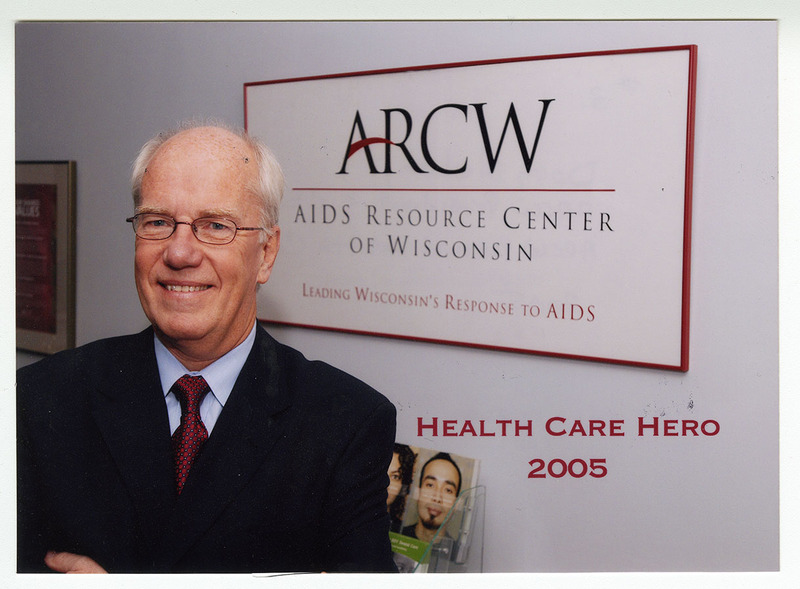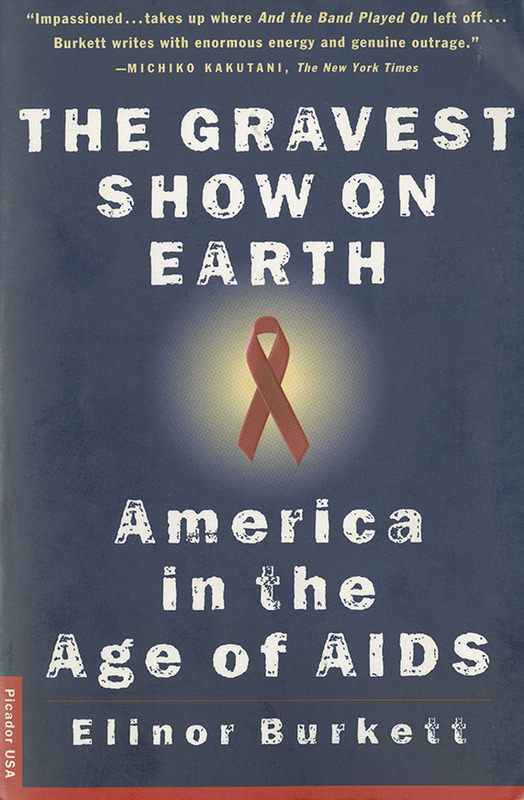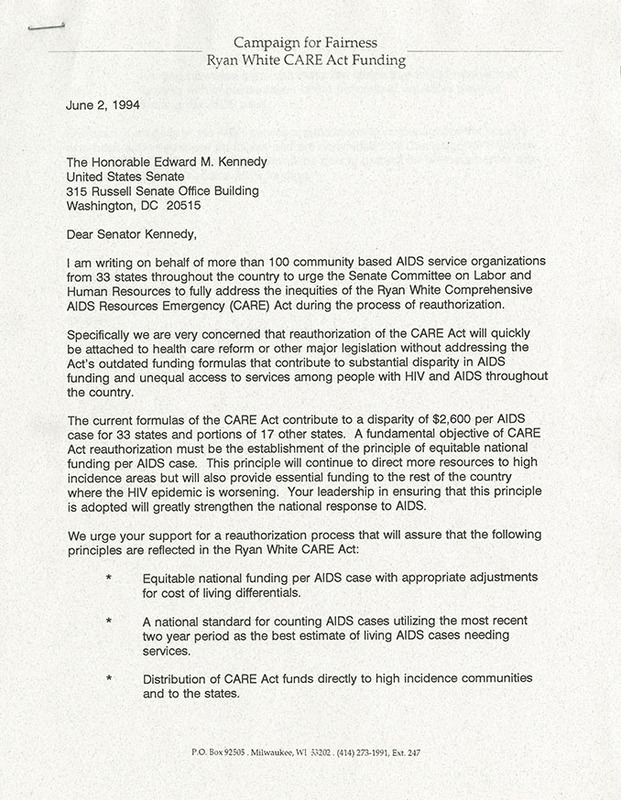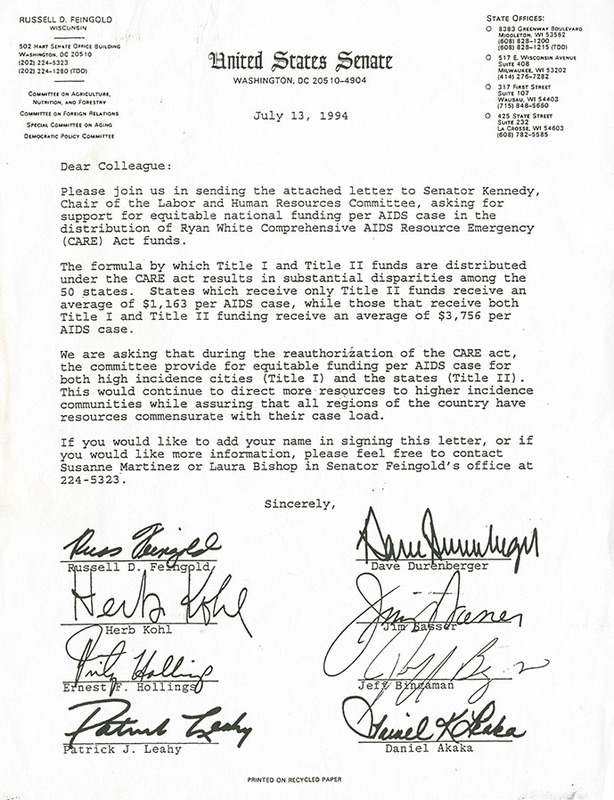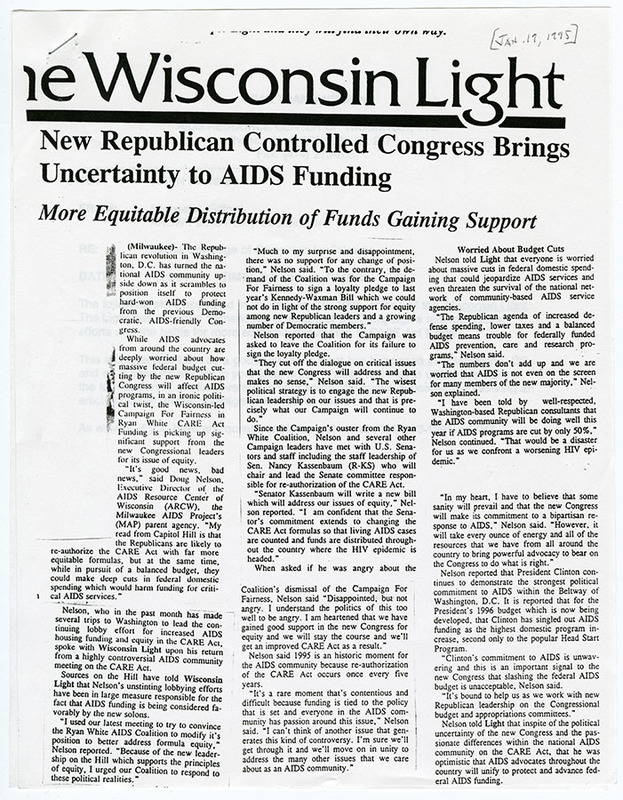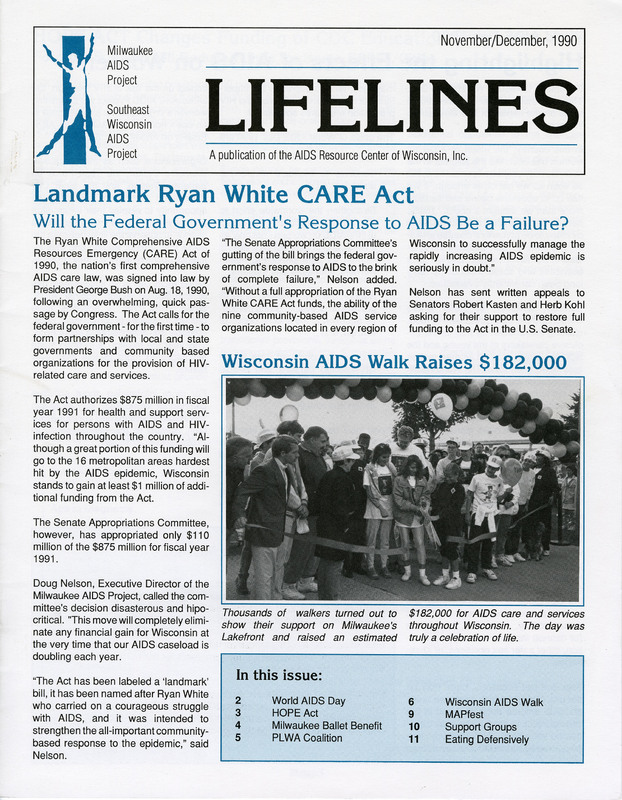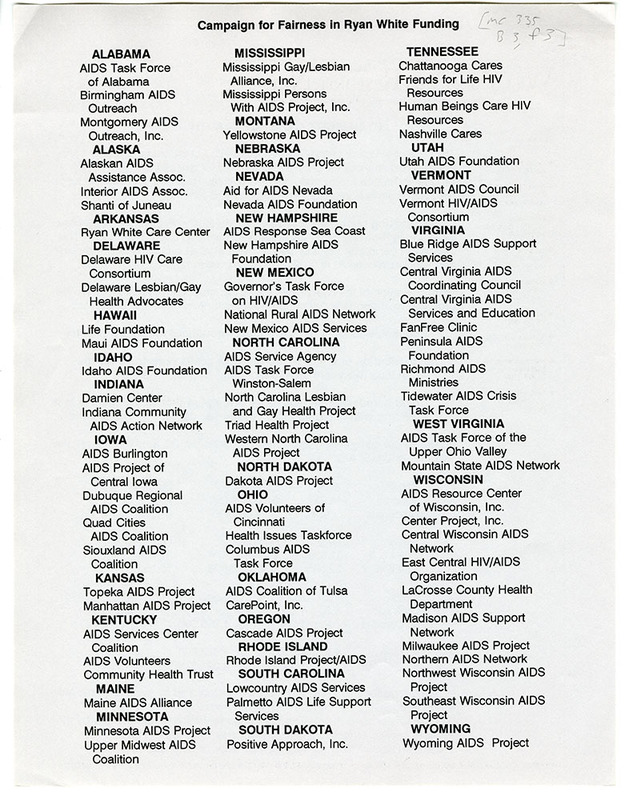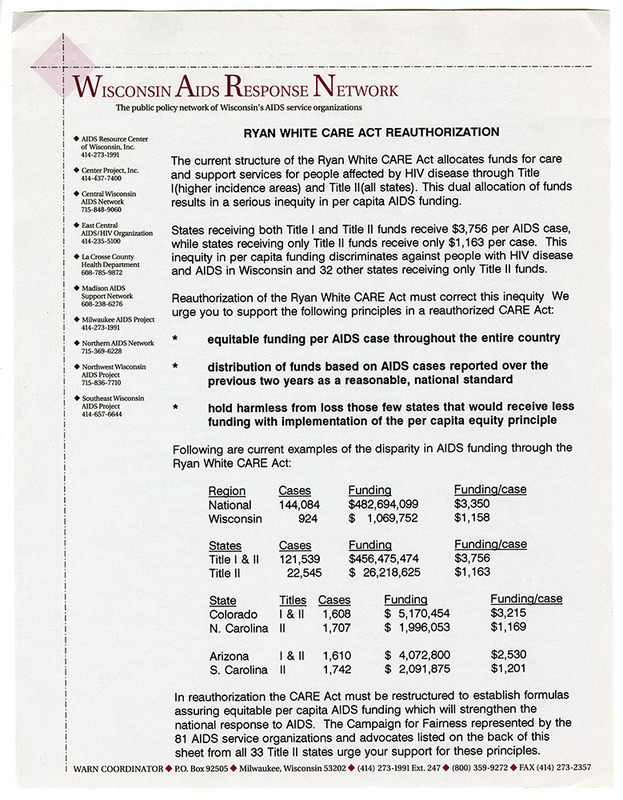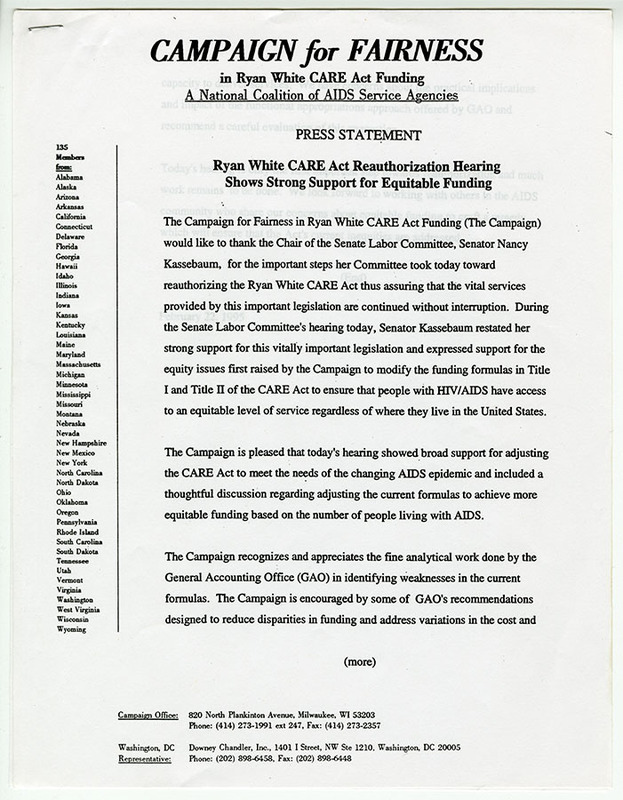Campaign for Fairness
Congress enacted the first Ryan White CARE Act in 1990 to improve the availability of care for low-income, uninsured and under-insured people with HIV disease. The funding formulas in the legislation awarded significantly more AIDS funding to a few large cities hardest hit by the AIDS crisis—San Francisco, New York, Los Angeles, and others—and less funding to those with fewer AIDS cases.
When the legislation was up for reauthorization in 1994, ARCW examined the funding formulas and discovered that some states received up to $4,000 more per AIDS case than Wisconsin. As a member of the national AIDS Action Council, ARCW urged a change in the funding formulas to achieve more equitable Ryan White funding per AIDS case throughout the country. Large AIDS service organizations (ASOs) from high-funded states, however, were in control of the Council and consistently opposed the ARCW-recommended changes.
In its quest for equitable AIDS funding, ARCW organized the Campaign for Fairness--a national coalition of ASOs in 47 states who supported equitable funding. Representing the Campaign, ARCW leaders Doug Nelson and Mike Gifford made the case for equitable funding to Congress and the Clinton Administration. Two years of advocacy by ARCW resulted in a Congressional victory for equitable funding formulas. When President Clinton signed the Ryan White CARE Act in 1996, the new equitable formulas allocated millions more in AIDS funding for HIV services in Wisconsin and many other states throughout the nation.

